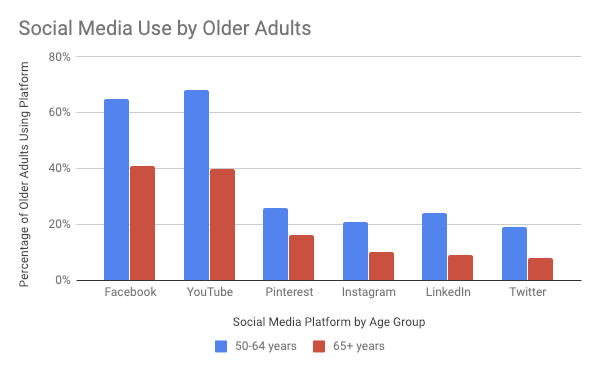Social Wellness
#83 One More Dimension
We are exploring six mutually interdependent dimensions of wellness. As you learn more about each, you will see how they connect and contribute to aging well. So far, we’ve discussed the emotional and spiritual components. In this article, we will explore social wellness.
Social wellness contributes to people’s health, happiness, and overall quality of life. It focuses on developing beneficial connections with those around you, be they family, friends, or the wider community.
People with healthy relationships and a solid social network tend to live longer and respond better to stress. This reduction in stress and anxiety results in a healthier endocrine system, improved cardiovascular functioning, and an enhanced immune system.
Building healthy relationships
The NIH website offers a toolkit for improving your social health.
From the time you’re born, your relationships help you navigate the world. You learn how to interact with others, express yourself, conduct everyday health habits, and be a part of different communities from those around you. Positive social habits can help you build support systems and stay healthier mentally and physically.
The toolkit suggests that you
Make connections.
Take care of yourself while you care for others.
Get active together.
Bond with your kids.
Build healthy relationships.
Shape your family’s health habits
What other positive social habits do you recommend?
Let’s talk about three benefits that social wellness provides: a sense of belonging, decreased victimization, and less isolation.
There have always been things to belong to - families, tribes, countries, and religions. But today, those are changing. Breaking down perhaps; widening and becoming less distinct.
A sense of belonging is vital for life satisfaction, happiness, mental and physical health, and longevity. It gives people a sense of purpose and meaning. Research has shown that a loss of belonging is associated with decreased stress, illness, well-being, and depression.
Seniors who are socially connected have a stronger sense of belonging, which translates into better physical, mental, and emotional health. People confident with their place in the world are less likely to question their faith and beliefs, providing more robust spiritual health.
Connecting seniors with their peers and loved ones make them less susceptible to abuse. Social connections can help prevent abuse and make seniors more likely to report it. This newsletter has several articles regarding senior victimization.
Social Isolation
Socially isolated people are more susceptible to illness and have a death rate two to three times higher than those who are not socially isolated.
According to WebED website, the health risks from being alone or isolated in one’s life are comparable to the risks associated with cigarette smoking, high blood pressure, and obesity. Lonely people are 50% more likely to die prematurely.
Older adults are particularly vulnerable to loneliness and social isolation due to declining health and mobility, loss of significant loved ones, and a smaller social network. Loneliness is frequently tricky to spot, and seniors can be unaware that they are lonely or reluctant to disclose it.
Social connections for seniors are essential for mental, emotional, and physical health. Seniors with a solid social network have a better quality of life, experience superior overall health and wellness, and are at lower risk of nursing home abuse.
If you have an aging loved one who is experiencing the effects of isolation, here are ways they can maintain positive well-being through socializing.
For many years, Scientific and health communities viewed isolation as detrimental to the overall well-being of older adults. Studies continually suggest that those who are chronically isolated tend to have a higher frequency of health-related issues – while, conversely, socialization efforts can lead to healthier, more fulfilling lives.
The Global Council on Brain Health (GCBH) – an international collaborative of AARP – recently released a report which includes a consensus statement indicating that social engagement helps “thinking skills and slows cognitive decline later in life.”
The Social Wellness in Seniors article suggests
Join a class or group – Whether enrolling in a computer class or joining an exercise group at the local senior center, there are countless ways for older adults to engage in new activities.
In addition to strengthening their cognitive abilities, these opportunities allow them the chance to make new social connections with like-minded people. And because many of these activities are structured, stability is added to the day-to-day routines of older adults.
Religious organizations offer various socialization opportunities, including retreats and community outreach events.Stay/become involved – Sometimes, giving back to others is the best way to help maintain social wellness. Most towns have a wide array of organizations that assist those in need - anything from giving music lessons to providing food. If aging loved ones have a skill or talent, encourage them to reach out to their local civic and charity organizations.
Giving back can be as simple as volunteering at a soup kitchen monthly. These opportunities will facilitate healthy socialization while providing a meaningful sense of accomplishment.
Strengthen existing relationships – Throughout a lifetime, it’s not uncommon for certain friends and family members to drift in and out of our “social circles.”
All it takes is one instance of reaching out to reconnect and catch up on old times. Social media platforms like Facebook have made this more accessible and more manageable.
Your loved one can send instant messages and share photos. The visual, interactive component of social media can make a world of difference, especially when face-to-face interaction is not possible or feasible.
My son lives out of state. We have a daily ongoing Skype conversation. I text regularly with my grandsons and have regular ZOOM calls with a European friend.
While these are possible ideas, there can be complications, such as transportation, mobility, scammers, and lack of computer knowledge, to name a few.
While the pandemic limited peoples’ communication ability, the problem may be lessening. There are safe ways to connect with loved ones; however, you must check them out thoroughly before using them.
Whether you are an older adult, a caregiver, or someone with a chronic illness, there are ways to stay socially connected safely. Check them out.




I love this article, Janice. It is so timely. My friend Jim is in Arizona right now, bundling up his father
and bringing him to live with him in California. He is a good son. Skype and Zoom are helpful, surely, but he knows they are not enough. We are personally responsible for our old ones and MUST care for them. Period. By the way, a little off topic, but I saw a poster yesterday. " Life is short. Make sure you spend as much time as you possibly can arguing with strangers on the internet." Yes, ridiculous advice, but why do so many people do it? Are they looking for validation? For a sense of belonging? For meaning? They brag about having hundreds of "friends". I believe they have forgotten what friendship means. Sometimes I think people forget what family means, too. Keep up the fine work!
This is great content. Staying engaged helps you stay active and independent longer